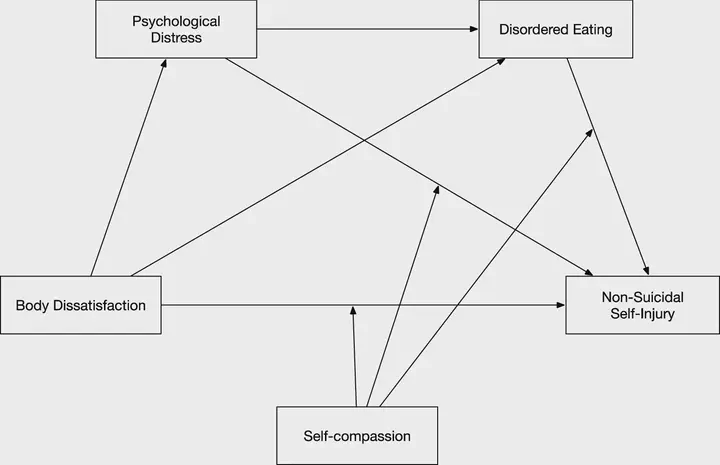Body dissatisfaction and non-suicidal self-injury among Chinese young adults: a moderated mediation analysis

Abstract
Objective: Extensive evidence from Western societies supports the role for body dissatisfaction in the etiological models of non-suicidal self-injury (NSSI). However, research of the underlying mechanisms of this relationship has been limited, especially in China. Therefore, the aim of this study was to examine the association between body dissatisfaction and NSSI among college students in China. Possible mediating roles for psychological distress and disordered eating, as well as a moderating role for self-compassion, were also examined.
Methods: College students (n = 655, Mage = 20.32 years, SD = 1.02) were recruited from Henan province, China. Each participant completed questionnaires regarding body dissatisfaction, psychological distress, disordered eating, and self-compassion.
Results: A close to medium positive relationship between body dissatisfaction and NSSI was revealed with r = 0.24 (p < .001). The relationship was found to be fully mediated by psychological distress and disordered eating. The mediation role for disordered eating was found to be further moderated by self-compassion, suggesting that self-compassion acted as a buffer against the relationship between disordered eating and NSSI.
Conclusion: These findings indicate that body dissatisfaction, psychological distress, disordered eating, and self-compassion may play important roles in Chinese young adults’ NSSI. Researchers and practitioners need to pay closer attention to the underlying mechanisms of how body dissatisfaction links to NSSI to deepen the understanding of their linkage as well as to provide appropriate interventions.